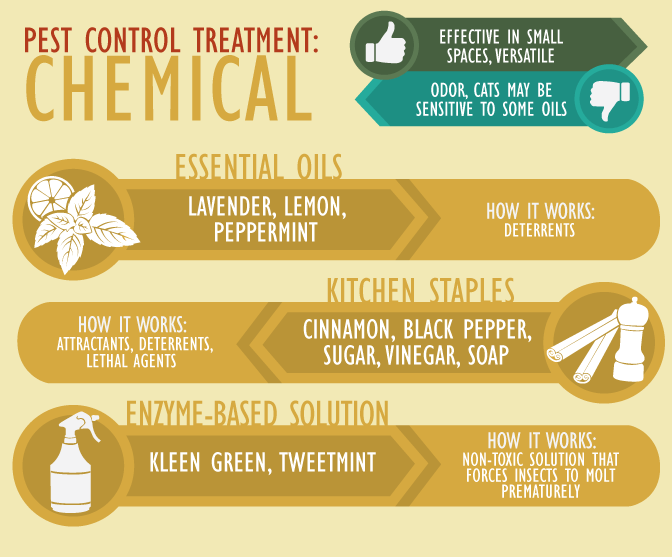Prepare Yourself To Turn Your Garden Into A Pest-Free Place Utilizing These Imaginative Ideas And Techniques
Prepare Yourself To Turn Your Garden Into A Pest-Free Place Utilizing These Imaginative Ideas And Techniques
Blog Article
Produced By-Vang Sharma
Imagine your garden as a haven, an area of peace and charm. However, the visibility of outside pests can rapidly disrupt this picturesque photo. What if there were simple yet effective ways to maintain these unwelcome visitors away and protect your garden sanctuary? By complying with a couple of functional ideas and implementing all-natural approaches, you can create an unified outdoor space where your plants can grow uninterrupted.
Natural Parasite Deterrents
To maintain parasites away from your garden normally, plant fragrant natural herbs like mint and lavender. These fragrant plants not only add elegance to your garden yet likewise act as efficient bug deterrents. Parasites like mosquitoes, flies, and also some garden-damaging insects are pushed back by the solid scents given off by these natural herbs. Merely positioning them tactically around your garden can help develop a natural barrier versus unwanted insects.
In addition to mint and lavender, take into consideration growing various other natural herbs like rosemary, basil, and lemongrass to further enhance your yard's pest-proofing capacities. These herbs not just act as natural repellents however also have the included benefit of serving in cooking or crafting home made remedies.
Strategic Plant Placement
Take into consideration the layout of your garden and the kinds of plants you have to strategically position them for optimum pest-proofing performance.
Begin by grouping plants with similar resistance to bugs together. By doing this, you can develop an all-natural barrier that prevents insects from spreading out throughout your yard.
Furthermore, placing pest-repelling plants like marigolds, lavender, or mint near even more susceptible plants can help safeguard them. High plants, such as sunflowers or corn, can serve as a shield for much shorter plants against bugs like rabbits or ground-dwelling bugs.
Keep in just click the up coming post to leave adequate room in between plants to improve air flow and decrease the threat of illness that pests might bring.
Moreover, think about planting strong-smelling herbs like rosemary or basil near vulnerable plants to puzzle parasites' detects and make it harder for them to find their targets.
Reliable Bug Control Techniques
For combating yard parasites effectively, applying a multi-faceted parasite control technique is necessary. Start by encouraging all-natural predators like birds, ladybugs, and hoping mantises to help keep insect populations in check. Presenting plants that bring in these beneficial bugs can help in insect control. Additionally, exercising good yard hygiene by removing debris and weeds where pests may conceal can make your garden less friendly to undesirable site visitors.
Take into consideration utilizing physical barriers such as row cover fabrics or netting to secure prone plants from parasites like caterpillars and birds. Applying organic chemicals like neem oil or insecticidal soap can likewise work against certain parasites while being much less damaging to helpful insects and the setting. It's vital to revolve your plants each season to prevent the buildup of pest populaces that target specific plants.
Consistently check your plants for indicators of bug damage so you can take action immediately. By incorporating simply click the following page and staying alert, you can effectively control garden insects and take pleasure in a growing, pest-free garden.
Final thought
So, there you have it - with the ideal strategies, you can keep pesky exterior parasites away from your yard and help your plants prosper.
Did you recognize that planting mint has been shown to repel mosquitoes and various other bugs, lowering the demand for harmful pesticides by approximately 60%?
By integrating natural deterrents and smart growing strategies, you can produce a beautiful and pest-resistant yard sanctuary for you to enjoy.
